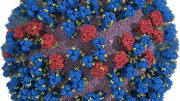
A collaborative study has uncovered microproteins exclusive to liver tumors, presenting a new avenue for cancer vaccine development. These microproteins arise from genes previously considered non-coding, offering hope for effective treatments for low-mutation cancers like liver cancer.
Scientists identified a set of microproteins that are exclusively produced in liver tumors. This makes them a clear target for immune system cells and a potential target for cancer vaccine development.
A study has identified a group of small molecules exclusive to liver tumors that could be key to developing cancer vaccines. These are microproteins, very small proteins expressed only by tumor cells. This can result in the activation of immune cells against the tumor.
The study, which was led by the Hospital del Mar Research Institute, with Cima University of Navarra and Pompeu Fabra University, will be published today (July 10) in the journal Science Advances.
Discovery Through Advanced Techniques
By integrating data from tumors and healthy tissue from over one hundred liver cancer patients, the researchers identified this set of microproteins. These small molecules are generated from genes that were previously thought incapable of encoding proteins.
“In recent years, there has been increasing attention to this group of genes, which, due to their short length or low expression, were considered non-coding. New techniques have revealed that some of these genes can indeed produce small proteins,” says Mar Albà, an ICREA researcher at the Hospital del Mar Research Institute.
This discovery was made possible through a combination of computational techniques such as transcriptomics, translatomics, and proteomics, along with laboratory experiments aimed at studying the immune response.
Potential for Cancer Vaccines
The development of cancer vaccines relies on the immune system’s ability to recognize foreign molecules that are not part of the body. Mutations in cancer cells generate foreign peptides that alert the immune system. However, the challenge lies with cancers that have low mutation rates, such as liver cancer. Studying microproteins, which were previously difficult to detect, offers an alternative.
“This study shows that there is a significant number of microproteins exclusively expressed in tumor cells that could be used to develop new treatments,” explains Marta Espinosa Camarena, a researcher at Hospital del Mar Research Institute.
Towards Clinical Application
“We have seen that some of these microproteins can stimulate the immune system, potentially generating a response against cancer cells. This response can be enhanced with vaccines, similar to the coronavirus vaccines, but producing these microproteins. These vaccines could stop or reduce tumor growth,” says Puri Fortes, a researcher at CIMA and CIBERehd.
Unlike other types of vaccines based on patient-specific mutations, this treatment could be used in multiple people, as the same microprotein is expressed in various patients.
Administering these vaccines could be relatively simple, although research for their application has not yet begun. “That is our goal,” the researchers indicate.
Reference: “Microproteins encoded by noncanonical ORFs are a major source of tumor-specific antigens in a liver cancer patient meta-cohort” by Marta E. Camarena, Patrick Theunissen, Marta Ruiz, Jorge Ruiz-Orera, Beatriz Calvo-Serra, Robert Castelo, Carla Castro, Pablo Sarobe, Puri Fortes, Júlia Perera-Bel and M. Mar Albà, 10 July 2024, Science Advances.
DOI: 10.1126/sciadv.adn3628









Be the first to comment on "Cancer Vaccine Breakthrough: How Tiny Proteins Could Revolutionize Oncology"